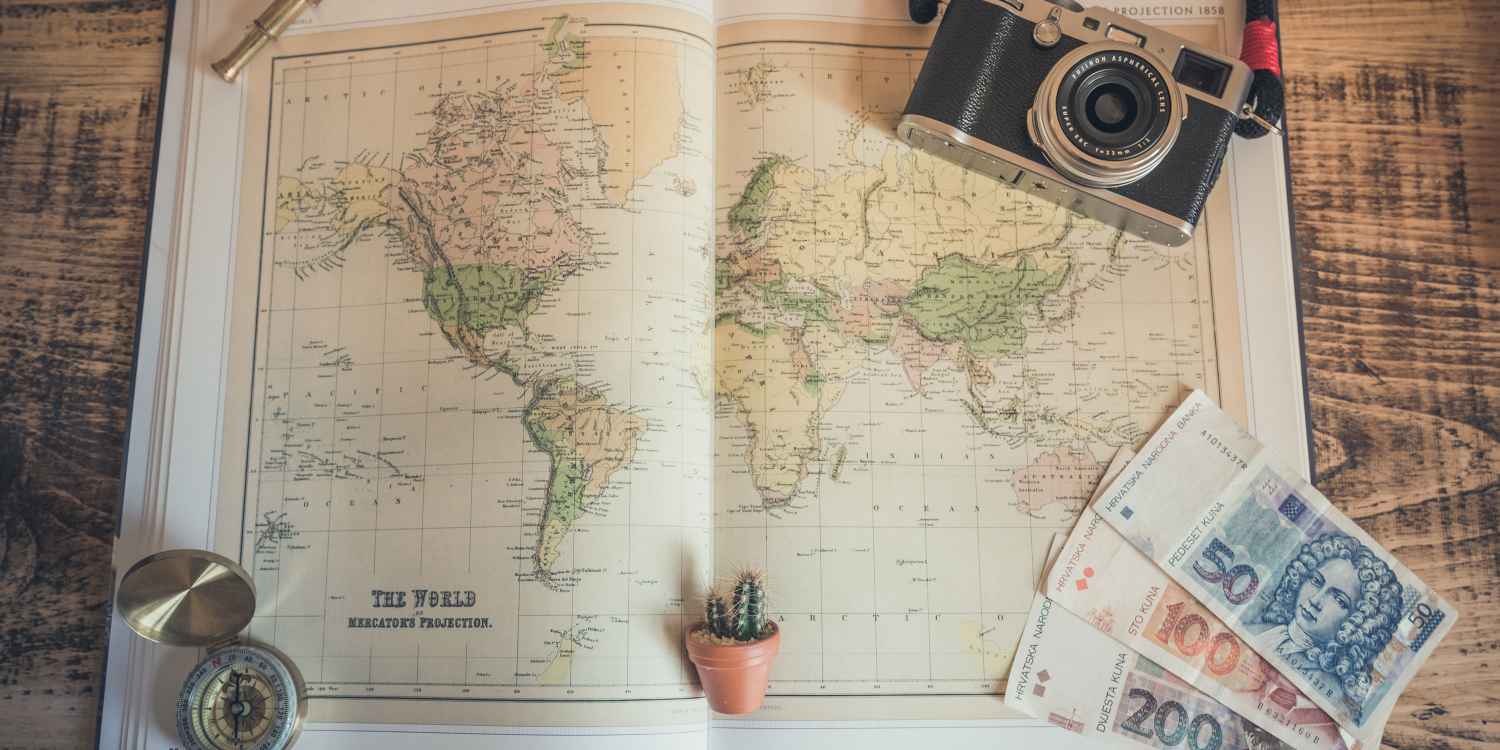So, you're planning your first European trip and you're starting to get excited. You've seen pictures of breathtaking sights and you can't wait to experience them all. But before you start packing your bags, it's important to take a step back and think about your budget. Budget travel in Europe is possible, but it requires a bit of planning and preparation. I've been traveling all over Europe for years, and I've learned how to stretch my budget so I can see and do more. I'm here to share my tips with you so you can have a budget-friendly and amazing trip.
Determining Your Overall Budget
The first step in budgeting for your trip is to determine your overall budget. This is the amount of money you have to spend on your trip in total, including airfare, accommodations, food, activities, and any other expenses. Start by looking at your current financial situation, including your income and expenses, and consider how much you can afford to save for your trip each month.
Determining a Daily Budget
Once you have your overall budget, the next step is to determine your daily budget. This is the amount of money you want to spend each day on average, including all expenses. To determine your daily budget, divide your overall budget by the number of days you'll be traveling. This will give you a good idea of how much you can afford to spend each day.
Setting Realistic Expectations
Now that you have a daily budget, it's time to set realistic expectations. Keep in mind that you're traveling in Europe, which can be expensive, so it's important to be realistic about what you can and can't afford to do. If you're traveling on a tight budget, you may have to skip some of the more expensive activities, like a fancy dinner or a high-end shopping spree. That's okay! There are plenty of other amazing things you can do that won't break the bank.
Prioritizing Expenses
Now that you have a rough idea of how much money you will be spending on a daily basis, it's time to start thinking about what you actually want to spend your money on. There are a lot of expenses that come up when traveling, and it can be easy to blow through your budget if you're not careful. This is why it's important to prioritize your expenses and decide what is most important to you.
One of the best ways to stay within your budget is to prioritize expenses. Decide which expenses are most important to you and allocate more money towards those. Are you a foodie and want to try as many different local dishes as possible? Do you want to see all the sights and go on a lot of tours? Do you want to splurge on a nice hotel or save on accommodations to have more money for other things? If you're a history buff and you want to visit as many museums as possible, allocate more money towards activities.
Knowing what is most important to you will help you allocate your budget more effectively. You can then make a list of your top priorities and allocate a certain amount of money to each. This way, you can make sure that you are able to do the things that are most important to you, without having to skimp on everything else.
Allocating Money for Different Expenses
Once you've prioritized expenses, the next step is to allocate money for different expenses. Start with the most important expenses, like airfare and accommodations, and then allocate money for food, activities, and other expenses. Keep in mind that you may need to adjust your budget as you go along, especially if you find that you're spending more or less money than you expected.
Setting Aside Money for Unexpected Expenses
No matter how much you plan, there's always a chance that you'll run into unexpected expenses on your trip. It's a good idea to set aside some money for these expenses, so you're not caught off guard. This money can be used for things like unexpected transportation costs, an unexpected meal or activity, or even a medical emergency.
Keeping Track of Expenses
Now that you have your budget set, it's important to keep track of your expenses as you travel. This will help you stay on track and make sure that you don't overspend. You can keep track of your expenses in a number of ways, including:
Writing down each expense in a journal or notebook
Using a budgeting app on your phone
Keeping receipts and recording expenses in a spreadsheet
Regardless of the method you choose, make sure to track your expenses regularly so that you can see how you're doing and make adjustments if necessary.
Money Saving Tips
- Use public transportation: Trains, buses and metros can be affordable and convenient ways to get around Europe. Look into purchasing passes or tickets ahead of time to save money.
- Book accommodations in advance: Booking hostels or budget-friendly hotels ahead of time can save you money and help you secure a spot in your desired location.
- Take advantage of free activities: Take a walk, explore local parks, or check out free exhibitions at museums.
- Eat like a local: Instead of dining at restaurants, try street food, visit local markets, or cook your own meals.
- Shop for souvenirs at local markets: These are often cheaper than tourist shops and provide a unique shopping experience.
- Avoid tourist traps: Be cautious of areas that cater to tourists and may have higher prices.
- Use travel cards or apps: Utilize travel apps or cards for budgeting, such as Monzo or Revolut, to keep track of your spending and make budgeting easier.
- Be flexible with your itinerary: Being open to changing plans or taking detours can save you money and lead to unexpected adventures.
- City discount passes: City discount cards and museum saving passes can be a great way to save money while traveling in Europe. City discount cards, like the Paris Museum Pass or the London Pass, offer discounted or free admission to popular tourist attractions and museums. Additionally, they may also offer discounts on transportation, dining, and shopping. These passes can help you save money if you plan on visiting multiple attractions or museums during your trip. It's important to research and compare the cost of these passes to the cost of purchasing individual tickets to determine if it is a good deal for your specific trip.
What Happens if You Go Over Your Daily Budget?
It's important to stick to your budget as closely as possible, but there may be times when you go over your daily budget. This can happen for a number of reasons, such as unexpected expenses or simply spending more than you anticipated. If this happens, don't panic. There are a few things you can do to get back on track:
- Cut back on non-essential expenses for the rest of your trip
- Adjust your daily budget for the rest of your trip
- Consider reducing the length of your trip if necessary
Remember, the goal is to have a enjoyable and memorable trip, so don't be too hard on yourself if you go over your budget. Just make adjustments and keep track of your expenses moving forward.
TL;DR
Remember to take into account currency exchange rates and the cost of travel insurance, which is always recommended when traveling abroad. You can also consider using travel credit cards with rewards programs or pre-paid travel cards to help you manage your budget better. Just make sure to read the fine print and understand all fees associated with these options.
Don't be afraid to ask locals or fellow travelers for tips on how to save money. They may have insider knowledge on where to find the best deals or hidden gems that won't break the bank.
Setting a budget for your trip to Europe can seem overwhelming at first, but it's actually a simple and straightforward process.
- Determine your overall budget
- Create a daily budget
- Prioritize your expenses
- Allocate money for different expenses
- Set aside money for unexpected expenses
- Keep track of your expenses as you travel.
With a little bit of planning, you can have a fantastic trip to Europe without breaking the bank.
Above all, be flexible and open to new experiences. The most memorable moments on a trip often come from unexpected encounters and adventures, and that includes budget mishaps, so embrace them and make the most of your time in Europe.
Helpful Links
Besides my website, Eurotripr.com, there are several useful websites that can help travelers when setting their budget or during their travels. These websites can be extremely helpful in the planning process, as well as during your travels, so be sure to keep them in mind when setting your budget.
BudgetYourTrip.com - This website provides travelers with an average cost of different expenses in various destinations, so they can get an idea of what they should budget for.
Numbeo.com - This website provides cost of living information for various cities and countries, which can help travelers determine their daily budget.
Skyscanner.com - This website is a great resource for finding affordable flights, as well as comparing prices across different airlines and dates.
Hostelworld.com - This website provides travelers with a comprehensive list of budget accommodations in Europe, including hostels, budget hotels, and dorm rooms.
BudgetTraveller.org - This website provides travel tips and advice for budget travelers, including information on budget destinations, budget activities, and budget-friendly accommodations.
Expatistan.com - This website allows travelers to compare the cost of living in different cities and countries, which can help them determine their daily budget.
XE.com, TransferWise, CurrencyFair - offers competitive currency exchange rates and allows you to compare prices from multiple sources, helping you get the best deal when converting money for your trip. You can also use these websites to monitor currency exchange rates, so you can make informed decisions about when to exchange your money.
City Discount and Museum Pass Card Websites
CityPASS: Offers discounts on admission to top tourist attractions in cities across the US and Europe, including Paris, London, and Amsterdam.
Go City Card: Provides discounts on top attractions and tours in cities like Paris, London, Rome, Madrid, and other European cities.
The Paris Pass: Offers a comprehensive travel and sightseeing pass for Paris, including free entry to top museums and attractions.
Paris Museum Pass: Provides free, unlimited entry to over 60 museums and monuments in and around Paris. It allows visitors to explore the city's top attractions, such as the Louvre and Versailles Palace, without waiting in long lines and offers significant savings compared to purchasing individual tickets. The pass is available in various durations to suit different trip lengths.
The London Pass: A sightseeing pass that offers free entry to over 80 of London's top attractions and discounts on others.
I Am Amsterdam City Card: A discount card for Amsterdam that offers free entry to top museums and attractions, as well as discounts on food and shopping.

